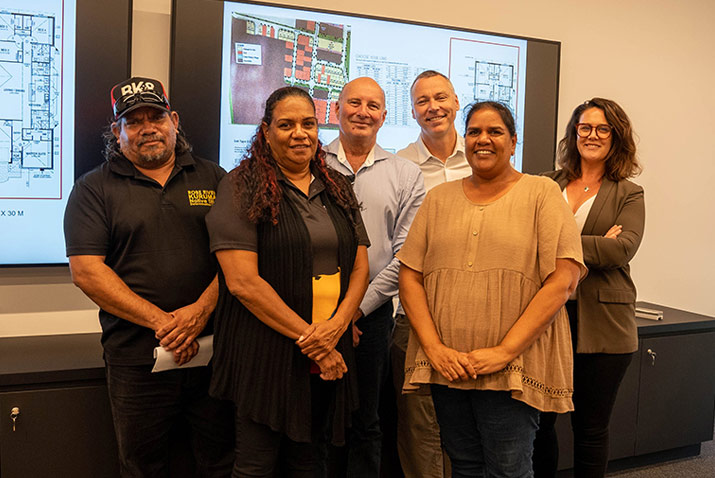Sign up to the Built Offsite Newsletter

A new pilot project by architecture students from The University of Western Australia and indigenous representatives from the North West aims to provide affordable and culturally appropriate prefabricated housing to communities in the Pilbara.
The UWA Masters in Architecture students will work with representatives from Robe River Kuruma to co-design a number of affordable prefabricated family housing planned for Karratha.
The pilot project aims to provide affordable prefabricated housing methodologies as a showcase for other indigenous and non-indigenous groups.
The students are working with the Robe River Kuruma people to incorporate culturally appropriate aspects and make the design appropriate in terms of commercial and regulatory design principles, block sizes and budget.
The prefabricated houses will have a service core, with two bathrooms, a kitchen and laundry with a secondary structural system built around the frame.
Project lead, Adjunct Professor Richard Simpson from UWA’s School of Design, said prefabrication had been used successfully in high-rise but not yet in single level housing at a significant scale.
“Housing affordability is a crucial issue facing the north of Australia,” Adjunct Professor Richard Simpson said.
“It is hoped that prefabrication and meaningful collaboration will provide a way forward.”
Adjunct Professor Simpson said the collaboration between industry and academia was the first of its kind to use prefabrication in remote suburban contexts.
“This is a great initiative giving our students exposure to emerging technologies and real world working projects. It also enables them to serve real clients from indigenous backgrounds,” he said.
Sara Slattery, CEO of the Robe River Kuruma Aboriginal Corporation, said there was and had been for a very long time, a chronic housing shortage in the Pilbara that all parties, including government and the private sector had struggled to resolve.
“The Robe River Kuruma people, consistent with their community objectives, are seeking to alleviate factors of disadvantage that impact them and housing is a key factor,” Ms Slattery said.
“As such, to an extent, the Robe River Kuruma people have themselves decided to tackle this problem head on.”
Click Here to return to the home page for more articles.